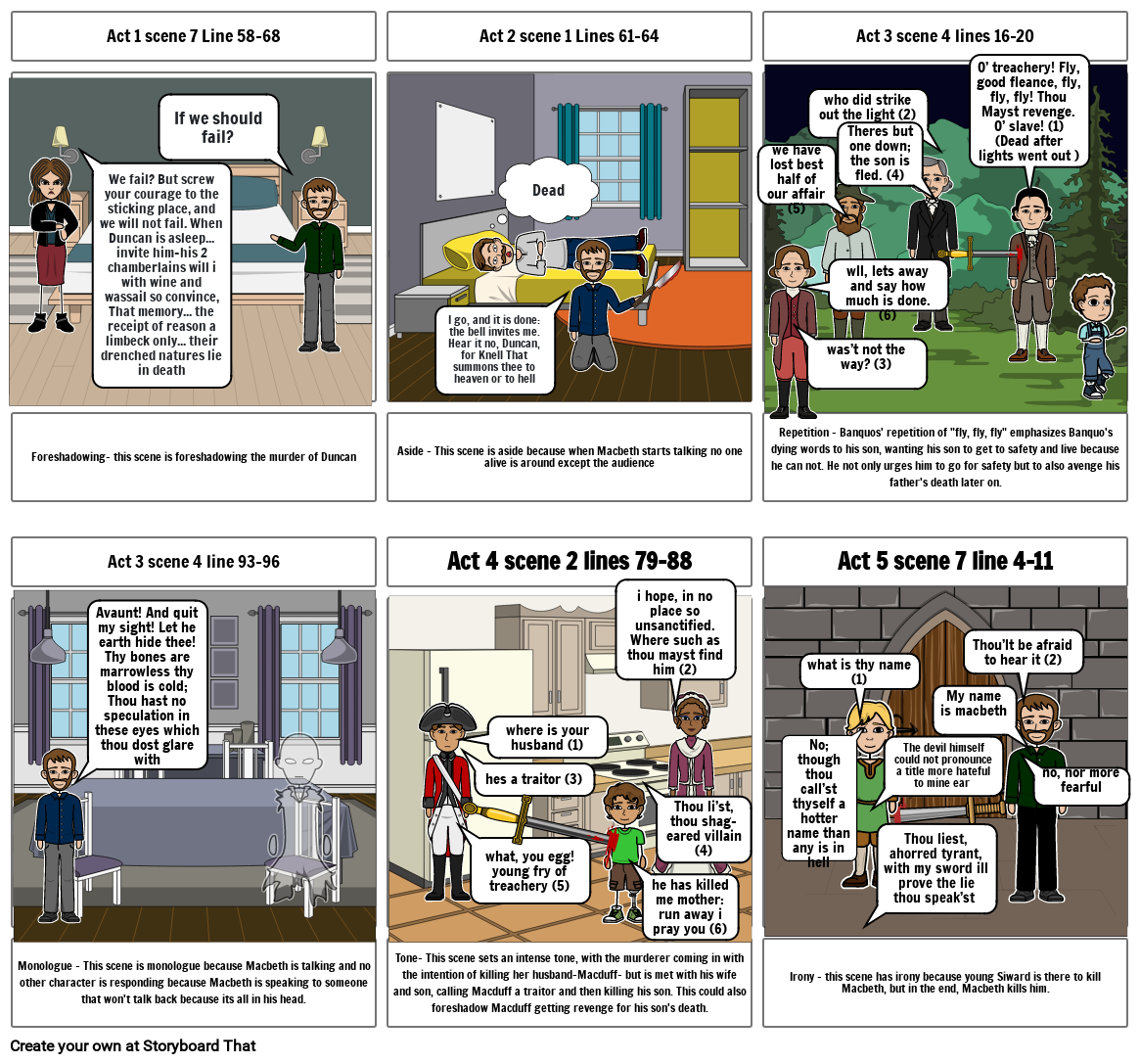Macbeth

Storyboard Text
- Act 1 scene 7 Line 58-68
- We fail? But screw your courage to the sticking place, and we will not fail. When Duncan is asleep... invite him-his 2 chamberlains will i with wine and wassail so convince, That memory... the receipt of reason a limbeck only... their drenched natures lie in death
- If we should fail?
- Act 2 scene 1 Lines 61-64
- I go, and it is done: the bell invites me. Hear it no, Duncan, for Knell That summons thee to heaven or to hell
- Dead
- we have lost best half of our affair (5)
- Act 3 scene 4 lines 16-20
- was’t not the way? (3)
- wll, lets away and say how much is done. (6)
- who did strike out the light (2)
- Theres but one down; the son is fled. (4)
- O’ treachery! Fly, good fleance, fly, fly, fly! Thou Mayst revenge. O’ slave! (1) (Dead after lights went out )
- Foreshadowing- this scene is foreshadowing the murder of Duncan
- Act 3 scene 4 line 93-96
- Avaunt! And quit my sight! Let he earth hide thee! Thy bones are marrowless thy blood is cold; Thou hast no speculation in these eyes which thou dost glare with
- Aside - This scene is aside because when Macbeth starts talking no one alive is around except the audience
- Act 4 scene 2 lines 79-88
- i hope, in no place so unsanctified. Where such as thou mayst find him (2)
- Repetition - Banquos' repetition of "fly, fly, fly" emphasizes Banquo's dying words to his son, wanting his son to get to safety and live because he can not. He not only urges him to go for safety but to also avenge his father's death later on.
- Act 5 scene 7 line 4-11
- what is thy name (1)
- Thou’lt be afraid to hear it (2)
- Monologue - This scene is monologue because Macbeth is talking and no other character is responding because Macbeth is speaking to someone that won't talk back because its all in his head.
- Tone- This scene sets an intense tone, with the murderer coming in with the intention of killing her husband-Macduff- but is met with his wife and son, calling Macduff a traitor and then killing his son. This could also foreshadow Macduff getting revenge for his son's death.
- where is your husband (1)
- what, you egg! young fry of treachery (5)
- hes a traitor (3)
- he has killed me mother: run away i pray you (6)
- Thou li’st, thou shag-eared villain (4)
- Irony - this scene has irony because young Siward is there to kill Macbeth, but in the end, Macbeth kills him.
- No; though thou call’st thyself a hotter name than any is in hell
- Thou liest, ahorred tyrant, with my sword ill prove the lie thou speak’st
- The devil himself could not pronounce a title more hateful to mine ear
- My name is macbeth
- no, nor more fearful
Over 30 Million Storyboards Created
No Downloads, No Credit Card, and No Login Needed to Try!
